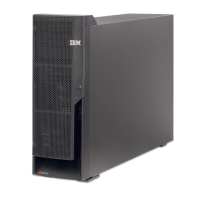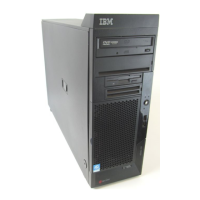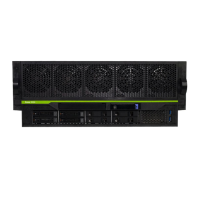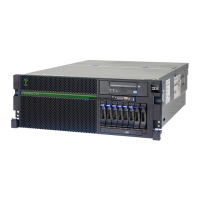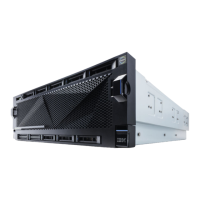5486IOA.fm Draft Document for Review October 18, 2004
340 IBM Eserver i5 and iSeries System Handbook
PCI card technology
The original AS/400 systems used SPD cards to input/output (I/O) services to the
system. SPD cards integrate the IOP and IOA function on a single card. PCI I/O
architecture separates IOP and IOA functions so that you can add one IOP and
have several different IOAs controlled by the one IOP.
PCI architecture provides more flexibility in the placement of IOPs and IOA
cards. This results in more efficient use of card slots, potentially resulting in a
lower cost of implementation. PCI I/O structure enables customer setup of the
server and select features on all models.
The fundamental bus architecture remains unchanged in iSeries servers with the
implementation of PCI adapters. PCI architecture offers advantages over other
non-iSeries (or non-AS/400e) system structures. The system IOP is architected
to offload the main processor, isolate the host from adapter and network errors,
and to manage, configure, and service the adapters. On all current models,
adding or removing PCI cards can be performed without taking the server down.
This allows you to power down a PCI slot and remove the PCI card from the
system without powering down the system. This improves the availability of the
system and allows you to perform upgrades, maintenance, or repair without
impacting the users of the system.
Increased flexibility of configuration, however, adds a degree of complexity to the
configuration process. With the implementation of PCI technologies, a full
understanding of configuration rules associated with the various I/O features of
the iSeries server is required.
Due to the possibility of having to reset an IOP occasionally as a result of tape
problems, we recommend that you do not combine any other critical IOAs
(particularly disk IOAs) with a tape IOA on the same IOP. Resetting an IOP
causes all IOAs downstream of it to be deactivated during the reset.
Refer to “PCI-X” on page 22 for a description of PCI-X, the newest generation of
PCI technology used on iSeries servers.
Note: Refer to the individual PCI card descriptions and the system
descriptions to see if
hot swapping of a specific PCI card is supported.
Note: If a system or expansion tower has the capability of concurrent
maintenance, it is possible to reset only the IOA. However, there are instances
that require resetting an IOP.

